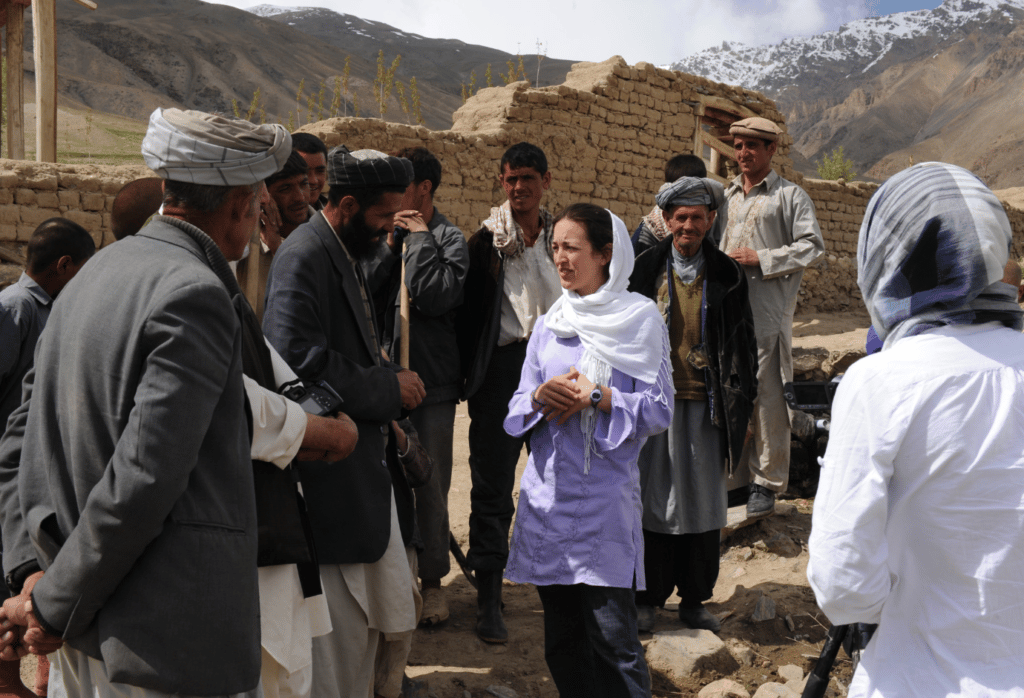In the final weeks of 2022, the Taliban escalated their restrictions on women’s rights in Afghanistan by banning female staff from working in foreign aid and NGOs — citing the breach of some workers to adhere to the regime’s strict dress code.
Organisations including CARE and Save the Children — both of which actively provide critical humanitarian assistance to the 29 million people out of the country’s estimated 36 million citizens who need it, temporarily suspended their operations in response to the ban, saying female workers were critical for on-the-ground operations, especially when it came to identifying female-specific needs.
Under the Taliban’s regime, men are not allowed to deliver assistance to women.
This week, female workers in various aid organisations have returned to work after the Taliban issued an assurance that they may work in areas such as health.
A spokesperson for the Ministry of Economy (the ministry that ordered the ban in December) told AFP news it was “a need for our society” that female staff are permitted to work in the health sector.
“We need them to support the malnourished children and other women who need health services,” Abdul Rahman Habib said. “[Female staff] are working in line with our religious and cultural values.”
The International Rescue Committee (IRC) is one of several NGOs that have restored their programs in health and nutrition this week, with spokesperson Nancy Dent issuing a statement, saying the Ministry of Public Health has “…offered assurances that female health staff, and those working in office support roles, can resume working.”
“Based on this clarity, IRC has restarted health and nutrition services through our static and mobile health teams in four provinces,” she said.
“Without female staff at all levels and across all sectors, we cannot accurately assess needs and deliver aid and programs at the necessary scale.”
According to a spokesperson from the Afghan Ministry of Public Health, health-related activities had not been halted.
“Due to a misunderstanding they stopped their health services and now they have restarted their health services,” the Ministry spokesperson told Reuters.
Another NGO that temporarily stopped operations, Save the Children, announced they have restored a limited number of programs across health, nutrition and education.
In a statement issued over the weekend, the organisation — which has over 5000 staff in Afghanistan, with roughly half of them women, said they had “received clear, reliable assurances from relevant authorities that our female staff will be safe and can work without obstruction.”
“However, with the overarching ban still in place, our other activities where we do not have reliable assurances that our female colleagues can work, remain on hold.”
“Women make up 50% of our workforce… [the] majority of our programs remain on hold.”
Samantha Halyk, a spokesperson for Save the Children, said the activities they are working to restart will “provide vital assistance, but these activities are only the tip of the iceberg of what’s required.”
CARE also issued a statement, saying they will be resuming its health and nutrition operations in Afghanistan after receiving “necessary assurances from the Ministry of Public Health that our female staff will be able to carry out their work safely and unfettered, both in community-based and support roles.”
Executive director of the Afghan Women’s Educational Center, Kochay Hassan told Science that her NGO continues to operate, with most women working at home. “We have a lot of ambition,” Hassan said. The ban “will not stop us … if women can still work from home and engage with our male colleagues.”
The Taliban’s ban continues to bar women working in other relief activities such as sanitation, food distribution and economic support.
How did the ban begin?
On December 24 last year, an edict was issued by the Taliban banning Afghan females from working in NGOs.
Aid agencies immediately warned that the ban would worsen the humanitarian crisis in the country.
The UN urged the Taliban to reverse the order, saying the ban on women working in NGOs “not only deprives women workers of their fundamental rights and livelihood, but also prevents them from supporting their communities.”
“It will further push women out of jobs and completely erase them from the public sphere,” the statement read. “Without female humanitarian workers, women and girls as well as boys will not have access to food, education, child protection, gender-responsive legal aid, livelihoods support and essential healthcare services.”
Meanwhile, Afghanaid, a UK-based humanitarian and development organisation focused on Afghanistan, issued their own statement, saying, “If NGOs are unable to employ female staff… Afghan women will be unable to receive humanitarian and development aid directly, and we therefore lose the ability to support half the population.”
Up to 19 million Afghans continue to face critical food insecurity, three million children remain at risk of malnutrition and 29 million require humanitarian assistance.
Earlier this week, U.N. deputy secretary general, Amina Mohammed and Sima Bahous, executive secretary of UN Women, arrived in Kabul to discuss the lifting of the ban with Taliban authorities.


